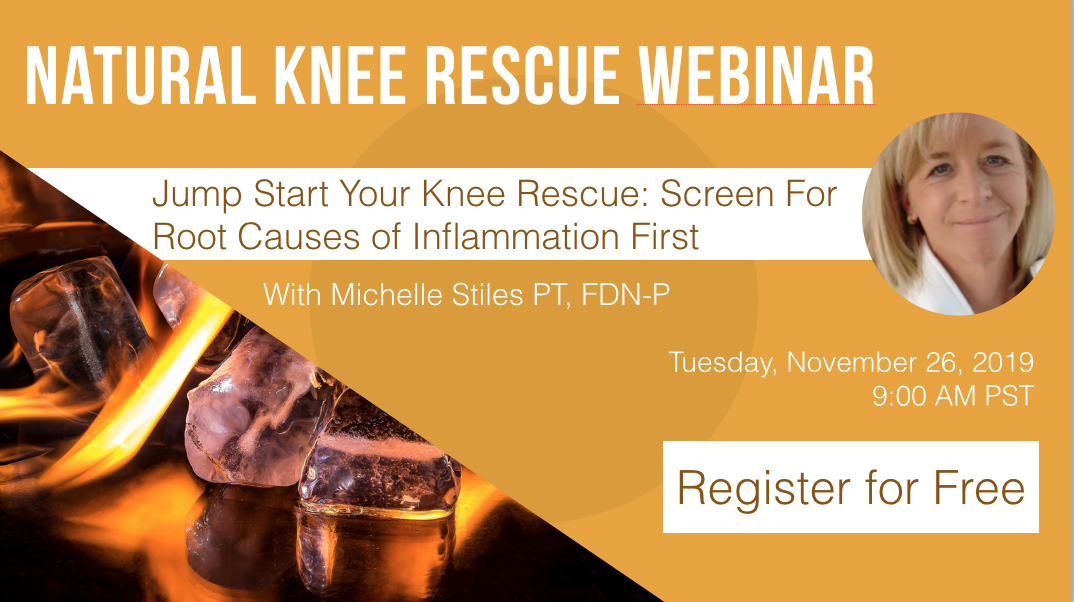How long do knee replacements last? For younger people struggling with debilitating knee pain, this is the burning question. Can you trust the longevity estimates for knee replacement surgery and what are the real risks of proceeding with the surgery in your 40’s and 50’s? 
A number of years ago I wrote a blog post about why knee replacement surgery in your 40’s was a bad idea. I get more comments from that post than any other written to date and many are from angry people indignant at my suggestion that they should reconsider having the surgery so early.
The data below represents the best numbers available to date to estimate how long a knee replacement will last. These are not the numbers thrown about in the glitzy marketing hype so often encountered throughout the web. My goal is for you to be able to make a trully informed and intelligent decisions based on the real risks.
How Long Does the Average Knee Replacement Last?
The latest research data suggests that 82.3% of total knee replacements and 69.8% of partial knee replacements will last 25 years. [1]
This data is taken from the Finnish Registry, a sub population of the entire study because it is the only available data set without publication bias that has successfully tracked knee replacement surgeries for that length of time. The sample size for this estimate comes from just 89,856 Finnish patients.
Unfortunately, these more optimistic numbers are generated not only from a relatively small sample size but from a population with a mean age of 65 to 74 years.
Lifetime Risk of Revision
 Another study by Bayliss and colleagues concludes that “The lifetime risk of revision, a newer metric for determining risk, is low for patients over 70 years of age, around 5%. [2]
Another study by Bayliss and colleagues concludes that “The lifetime risk of revision, a newer metric for determining risk, is low for patients over 70 years of age, around 5%. [2]
However, when younger patients are segmented out of the larger sample the problems faced are painfully exposed.
For patients aged 50–54 years, lifetime risk of revision for knee replacement surgery increases to 35%. [2]
By the year 2030, patients younger than 65 years old will comprise 55% of knee replacements surgeries. The biggest increase will occur in patients aged 45–55 years. As a consequence, the number of revisions is expected to increase dramatically. [3-4]
What’s So Bad About Having A Revision?
First off, revisions are more expensive, which may or may not be relevant to you the consumer in the future but more importantly they result in worse outcomes than primary surgery, [1] which means more complications and more revisions down the road.
 What About Revising a Revision?
What About Revising a Revision?
Only two studies have investigated re-revision risk for those under 55 and they only looked at total hip patients. One study reported an alarming survival rate of 63% at 10 years, [6] and the other, using a biological reconstruction technique with bone grafting, showed more promising results with a 10 year survival of 87%. [7]
What about the Early Survival Rates of Younger Patients?
Again the news is concerning. 97% of knee replacements worked well after 5 years for those older than 65. This rate dropped to 95% for those aged 56-65 and dropped again to 92% for those less than 55 years old. [8] Rates were not available for patients in their 40’s because the database was not segmented beyond the 55 and under category.
While a 5 percentage point reduction in 5 year survival rates does not seems like a catastrophe, it has the potential to dramatically alter the 25 year survival rates that you might be counting on. (Currently at 82%)
One More Piece of Bad News
Although the survival rate of a knee replacement prosthesis is important, it is not the only measure of success. One in five patients who undergo knee  replacement surgery for osteoarthritis reports an unfavorable pain outcome after surgery. [9]
replacement surgery for osteoarthritis reports an unfavorable pain outcome after surgery. [9]
Pause for a breath, if you are adding all this up. You may want to reevaluate the glowing outcomes promised in slick marketing ads.
Consider this honest comment from an insider. Willem Schreurs, an orthopedic from the Department of Orthopaedics at Radbound University Medical Center in the Netherlands stated in the Lancet (2017),
The current trend to implant total hip and knee implants in ever younger patients, driven by the fact that the short-term outcomes in the first few years after surgery are mostly acceptable, could lead to many patients ceasing to be revisable, and these patients might become a large burden to society in terms of cost and disability. Both patients and surgeons need to be aware of this possibility, and postponing this kind of surgery, despite the realistic limitations of patients with osteoarthritis, should be considered more frequently.[5]
My God, what does he mean “ceasing to be revisable?” This is the unfortunate result when there is little bone material left to work with or of such poor quality as to prevent the ability to place another implant. At this point you are stuck with a very bum leg.
Doesn’t it Make Sense To Track These in the US?
 A wise person will be asking, hey, “Why don’t we have a United States Registry”?, and this is indeed an excellent question. The fact is, we do, it’s call the American Joint Replacement Registry (AJRR) sponsored by the American Academy of Orthopaedic Surgeons (AAOS).
A wise person will be asking, hey, “Why don’t we have a United States Registry”?, and this is indeed an excellent question. The fact is, we do, it’s call the American Joint Replacement Registry (AJRR) sponsored by the American Academy of Orthopaedic Surgeons (AAOS).
Despite it’s fledgling start in 2010, it is now the largest such database in the world. The registry has amassed information on just over 1 million hip and knee procedures. Despite steady growth, it currently tracks only 25%-30% of the annual procedure volume in the United States, leaving considerable room for future improvement.
Its brief existence however, makes it of little use in answering our primary question here, which is how long knee replacement implants are likely to last.
By the way, the first funded national joint registry was found in Sweden in 1975. There are currently six registries that have more than 15 years of potential follow-up data for knee replacements (those in Australia, Denmark, Finland, New Zealand, Norway, and Sweden), too bad the United States did not take the lead in this.
The Numbers
Realistic expectations about how long knee replacements last can get skewed by million dollar marketing and hype.
If you have your knee replaced at 52 it may last 25 years. You’ll be 77 and maybe the second one lasts for 10 years. One revision over a lifetime, not too bad.
If, however, the initial one lasts only 15 years, your first revision will be at age 67. Will you need another in 10-15 years?
Consider this comment from Ronni on my blog
I was 46 for first tkr and 4 yrs later it failed
Had revision but took a yr plus medical intervention to gain acceptable range of motion
PT was worthless. Swimming did help. Plus exercise in pool
I’m now post 20 yrs on knee and it’s in bad shape
Thinking about doing it again. Or just getting a scooter!
Summary
- 82% of knee replacements will last 25 years according to the best data we have compiled from a database of majority of people who had their knee replaced after age 65.
- Five year survival rates for those younger than 55 show a drop of 5 percentage points from those over age 65, from 97% to 92%
- Lifetime risk of revision increases to 35% for those age 50-54 compared to only 5% for those age 70 and over.
Note: I am in the process of completing my latest book entitled, Bone on Bone Under Age 65, A Wake Up Call Not a Prescription for Surgery. This is a work in progress which explores a more comprehensive approach to dealing with knee pain. An early copy is available here.
Note: I am currently piloting a coaching program to rescue you knee with diet and lifestyle changes so that you can avoid the surgery.
Click here for more information.
____________
Resources
[1] Evans, Jonathan et al. “How long does a knee replacement last? A Systematic Review and meta-analysis of case series and national registry reports with more than 15 years of follow-up” 2019 393 (10172) 655-663
[2] Bayliss Lee et al. “The effect of patient age at intervention on risk of implant revision after total replacement of the hip or knee: a datalink study” Lancet 2016; (17) 30059-4
[3] Kurtz SM, Lau E, Ong K, Zhao K, Kelly M, Bozic KJ. Future young patient demand for primary and revision joint replacement: national projections from 2010 to 2030. Clin Orthop Relat Res 2009; 467: 2606–12
[4] Kurtz S, Ong K, Lau E, Mowat F, Halpern M. Projections of primary and revision hip and knee arthroplasty in the United States from 2005 to 2030. J Bone Joint Surg Am 2007; 89: 780–85
[5] Schreurs et al. “Total joint arthroplasty in younger patients: heading for trouble?”Lancet. 2017; 389: 1374-1375
[6] Lee PT, Lakstein DL, Lozano B, Safir O, Backstein J, Gross AE. Mid-to long-term results of revision total hip replacement in patients aged 50 years or younger. Bone Joint J 2014; 96-B: 1047–51
[7]fTe Stroet MA, Rijnen WH, Gardeniers JW, van Kampen A, Schreurs BW. Satisfying outcomes scores and survivorship achieved with impaction grafting for revision THA in young patients. Clin Orthop Relat Res 2015; 473: 3867–75
[8] Julin, Jaakko et al. “Younger age increases the risk of early prosthesis failure following primary total knee replacement for osteoarthritis. A follow-up study of 32,019 total knee replacements in the Finnish Arthroplasty Register” Acta orthopaedica 2010; 81(4) 413-9
[9] Beswick Andrew, et al “What proportion of patients report long-term pain after total hip or knee replacement for osteoarthritis? A systematic review of prospective studies in unselected patients” BMJ Open 2012;2:e000435. doi: 10.1136/bmjopen-2011-000435

